October 1 stands as one of history’s most eventful days, witnessing the rise and fall of empires, groundbreaking discoveries, and moments that shaped our modern world across centuries of human achievement.
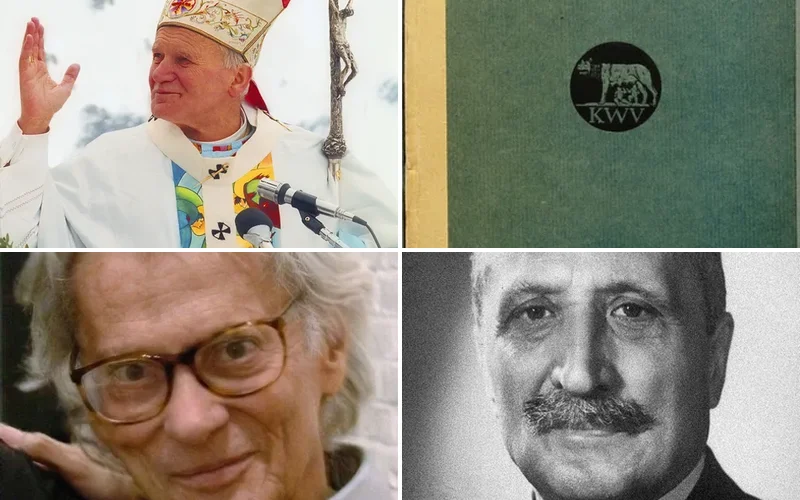
Politics and Government Events on October 1
1949 – The People’s Republic of China is established
Communist forces under Mao Zedong proclaimed the founding of the People’s Republic of China in Beijing. This revolutionary moment transformed China from centuries of imperial rule into a communist state.
The establishment marked the end of the Chinese Civil War and began a new era of socialist governance. Mao’s declaration from Tiananmen Square resonated across the world, signaling the emergence of a major communist power.
1982 – Helmut Kohl replaces Helmut Schmidt as Chancellor of Germany through a constructive vote of no confidence
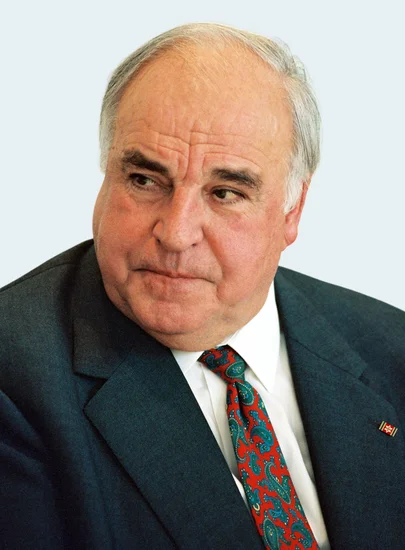
The German Bundestag executed a rare constitutional procedure to change government leadership without new elections. Kohl’s Christian Democratic Union successfully challenged Schmidt’s Social Democratic government through parliamentary maneuvering.
This political transition marked the beginning of Kohl’s historic 16-year chancellorship. His leadership would later prove crucial in German reunification and European integration efforts.
1961 – East and West Cameroon merge to form the Federal Republic of Cameroon
Two separate territories under different colonial administrations unified to create a single African nation. The merger brought together French and British colonial legacies into one federal structure.
This unification represented a successful example of peaceful territorial integration in post-colonial Africa. The new federal system attempted to balance diverse linguistic and cultural traditions within unified governance.
1960 – Nigeria gains independence from the United Kingdom
Africa’s most populous nation achieved independence after decades of colonial rule and nationalist movements. British authorities transferred power to Nigerian leaders in ceremonies marking the end of imperial administration.
The newly independent nation faced immediate challenges of unifying diverse ethnic groups and regions. This independence would inspire liberation movements across Africa and establish Nigeria as a major African power.
1955 – The Xinjiang Uyghur Autonomous Region is established
The People’s Republic of China created this autonomous region in its far western territories. The establishment granted nominal self-governance to ethnic minorities while maintaining central government control.
This administrative reorganization reflected China’s approach to managing diverse ethnic populations within its borders. The region’s strategic location and resources made it crucial for China’s development plans.
1953 – Andhra State is formed, consisting of a Telugu-speaking area carved out of India’s Madras State

India implemented linguistic reorganization by creating its first language-based state after independence. Telugu speakers achieved their long-sought goal of administrative unity based on cultural and linguistic identity.
This precedent-setting decision influenced India’s entire approach to state formation and federal structure. The success of Andhra State encouraged other linguistic communities to seek similar recognition.
1918 – Sayid Abdullah becomes the last Khan of Khiva

The ancient Central Asian khanate appointed its final traditional ruler as revolutionary changes swept the region. Abdullah’s ascension occurred amid the collapse of imperial systems across Eurasia.
His brief reign marked the end of centuries of traditional rule in this historic Silk Road territory. The khanate would soon fall to Bolshevik forces, ending an ancient political system.
2009 – The Supreme Court of the United Kingdom takes over the judicial functions of the House of Lords
Britain’s highest court gained independence from Parliament in a major constitutional reform. The new Supreme Court assumed final appellate jurisdiction previously held by the House of Lords.
This separation of judicial and legislative powers modernized Britain’s ancient constitutional system. The reform enhanced judicial independence while maintaining respect for parliamentary sovereignty.
Military and Naval History on October 1
1918 – World War I: The Egyptian Expeditionary Force captures Damascus
British and Allied forces seized the Syrian capital in a decisive victory over Ottoman defenders. The capture of Damascus marked the collapse of Ottoman resistance in the Levant.
This strategic victory opened the path to Ottoman surrender and reshaped Middle Eastern political boundaries. The city’s fall accelerated the disintegration of the Ottoman Empire’s remaining territories.
1939 – World War II: After a one-month siege, German troops occupy Warsaw
Polish defenders finally succumbed to overwhelming German forces after weeks of heroic resistance. The fall of Warsaw marked the effective end of Polish military resistance in the September campaign.
This occupation began one of the war’s most brutal periods of civilian suffering and resistance. The siege demonstrated both German military efficiency and Polish determination to fight against impossible odds.
1938 – Pursuant to the Munich Agreement signed the day before, Nazi Germany begins the military occupation and annexation of Czechoslovakia’s Sudetenland
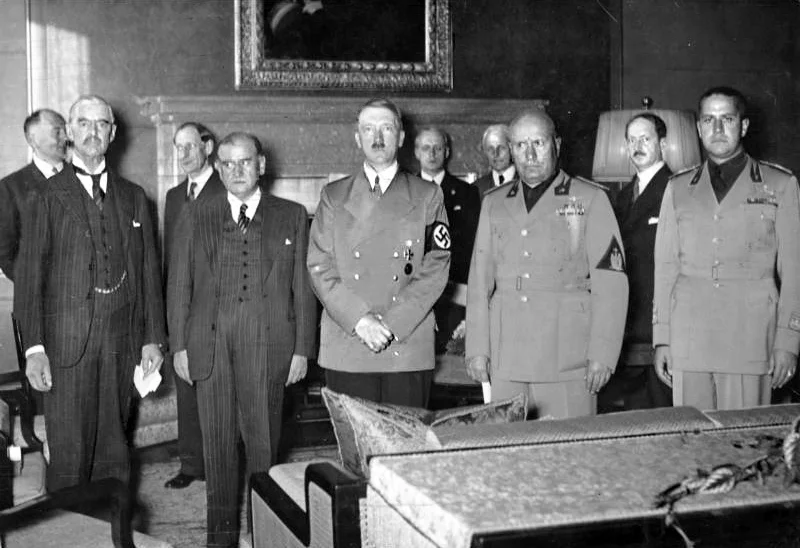
German forces moved into Czech border regions following the controversial Munich Agreement. This occupation marked the beginning of Czechoslovakia’s dismemberment without Czech consent.
The annexation demonstrated the failure of appeasement policies and encouraged further German aggression. The occupation placed millions of Czechs under Nazi rule and eliminated Czechoslovakia’s defensive capabilities.
1943 – World War II: After the Four Days of Naples, Allied troops enter the city
Allied forces entered Naples following fierce street fighting between German occupiers and Italian partisans. The city’s liberation marked a significant victory in the Italian campaign.
Local partisans had risen against German forces, contributing significantly to the Allied advance. The liberation of Naples provided crucial port facilities for continued operations in Italy.
1942 – World War II: USS Grouper torpedoes Lisbon Maru, not knowing that she is carrying British prisoners of war from Hong Kong
An American submarine attacked what appeared to be a Japanese transport vessel in Chinese waters. The tragic mistake resulted in the deaths of hundreds of British prisoners of war.
This incident highlighted the dangers faced by prisoners of war during transport in combat zones. The tragedy underscored the difficulties of submarine warfare and prisoner protection in the Pacific theater.
1946 – Nazi leaders are sentenced at the Nuremberg trials

The International Military Tribunal delivered historic verdicts against major Nazi war criminals. These sentences established precedents for international justice and accountability for war crimes.
The trials marked humanity’s first systematic attempt to prosecute leaders for crimes against peace and humanity. The verdicts provided legal foundations for modern international criminal law.
1936 – Spanish Civil War: Francisco Franco is named head of the Nationalist government of Spain
Nationalist forces unified under Franco’s leadership, consolidating anti-Republican opposition. This appointment marked the beginning of Franco’s rise to absolute power in Spain.
The decision eliminated competing Nationalist leaders and established Franco’s dictatorship. His leadership would prove decisive in the Nationalist victory and subsequent authoritarian rule.
1991 – Croatian War of Independence: The Siege of Dubrovnik begins
Yugoslav People’s Army forces began their assault on the historic Adriatic city. The siege threatened one of Europe’s most important medieval architectural treasures.
International outrage over attacks on the UNESCO World Heritage site galvanized opposition to Yugoslav aggression. The siege became a symbol of cultural destruction during the Yugoslav wars.
Science and Discovery Milestones on October 1
1958 – The National Advisory Committee for Aeronautics is replaced by NASA
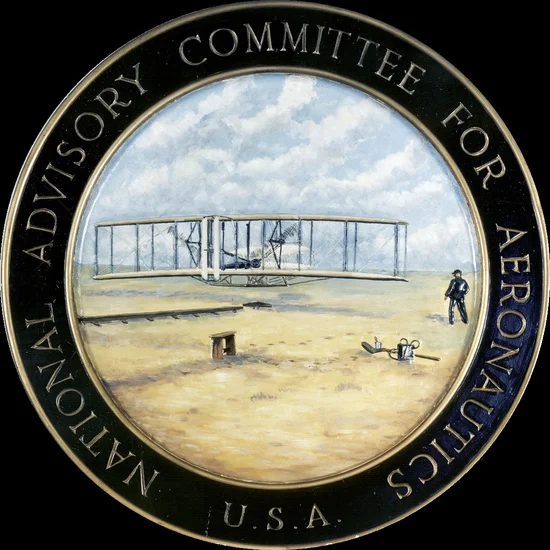
The United States established its premier space agency in response to Soviet space achievements. NASA’s creation marked America’s commitment to space exploration and technological leadership.
This transformation consolidated scattered aerospace research efforts under unified command. The agency’s formation launched America’s successful challenge to Soviet space supremacy.
1971 – The first practical CT scanner is used to diagnose a patient
Medical technology achieved a revolutionary breakthrough with the first clinical CT scan. This innovation transformed medical diagnosis by providing detailed internal body images.
The scanner’s success launched a new era of medical imaging technology. The development would earn its creators a Nobel Prize and revolutionize medical practice worldwide.
1969 – Concorde breaks the sound barrier for the first time
The Anglo-French supersonic airliner achieved its first supersonic flight in a major aviation milestone. This breakthrough demonstrated the feasibility of commercial supersonic passenger travel.
The achievement represented the pinnacle of 1960s aerospace engineering and international cooperation. Concorde’s success promised to revolutionize intercontinental air travel through unprecedented speed.
2001 – 3G wireless technology first becomes available when it is adopted by Japanese telecommunications company NTT Docomo
Japan launched the world’s first commercial third-generation wireless network, enabling high-speed mobile internet access. This technological leap transformed mobile communications from voice-only to multimedia platforms.
The 3G launch initiated the smartphone revolution and mobile internet era. This innovation fundamentally changed how people communicate, work, and access information globally.
Cultural and Arts Events on October 1
1915 – The Metamorphosis written by Franz Kafka is published in the German journal Die Weißen Blätter

Kafka’s masterpiece appeared in print, introducing readers to his surreal vision of modern alienation. The novella’s publication marked a watershed moment in 20th-century literature.
This haunting tale of transformation became one of literature’s most influential works. Kafka’s exploration of dehumanization resonated with readers experiencing rapid social change and modernization.
1971 – Walt Disney World opens near Orlando, Florida
Disney unveiled its massive Florida theme park complex, revolutionizing family entertainment and tourism. The opening created a new model for large-scale themed entertainment destinations.
The park’s success transformed Orlando into a global tourism destination and influenced entertainment industry development. Disney World became a cultural phenomenon affecting American family traditions and leisure activities.
1982 – EPCOT Center (Experimental Prototype Community of Tomorrow) opens at Walt Disney World in Florida
Disney launched its ambitious celebration of technology and world cultures in a groundbreaking theme park. EPCOT represented Disney’s vision of educational entertainment and international cooperation.
The park’s innovative attractions combined entertainment with learning about science, technology, and global cultures. EPCOT influenced theme park design and demonstrated the potential of edutainment.
1979 – Pope John Paul II begins his first pastoral visit to the United States

The Polish pontiff embarked on his historic American tour, drawing massive crowds and media attention. His visit marked a significant moment in Catholic-American relations and papal diplomacy.
The Pope’s charismatic presence and anti-communist message resonated strongly with American audiences. His visit strengthened Catholic identity in America and influenced American foreign policy perspectives.
1982 – Sony and Phillips launch the compact disc in Japan; on the same day, Sony releases the model CDP-101 compact disc player, the first player of its kind
The music industry transformed with the introduction of digital audio technology. The compact disc offered superior sound quality and durability compared to vinyl records and cassette tapes.
This technological revolution changed how people consumed music and influenced the development of digital media. The CD’s success demonstrated the commercial viability of digital audio technology.
Religious and Social Events on October 1
1989 – Denmark introduces the world’s first legal same-sex registered partnerships
Denmark became the first nation to legally recognize same-sex unions, establishing a historic precedent for LGBTQ+ rights. This groundbreaking legislation granted same-sex couples many of the legal benefits of marriage.
The Danish law inspired similar legislation worldwide and advanced the global movement for marriage equality. This pioneering step demonstrated how progressive legislation could lead international social change.
1964 – The Free Speech Movement is launched on the campus of the University of California, Berkeley
Student activists initiated a major protest movement demanding free speech rights on campus. The movement challenged university restrictions on political activities and civil rights advocacy.
This uprising became a defining moment of 1960s student activism and influenced campus politics nationwide. The movement’s success established precedents for student rights and university governance.
1962 – James Meredith enters the University of Mississippi, defying racial segregation rules

The first African American student enrolled at the University of Mississippi amid violent opposition and federal intervention. Meredith’s enrollment marked a crucial victory in the civil rights movement.
His courageous action required federal marshals and military protection against segregationist violence. The integration of “Ole Miss” became a symbol of federal commitment to civil rights enforcement.
1931 – Clara Campoamor persuades the Constituent Cortes to enfranchise women in Spain’s new constitution

Spanish women gained voting rights through the advocacy of feminist politician Clara Campoamor. Her passionate defense of women’s suffrage overcame significant political opposition.
This victory represented a major advancement for women’s rights in Spain and influenced feminist movements internationally. The achievement demonstrated the power of political advocacy in advancing social change.
Business and Economic Events on October 1
1928 – The Soviet Union introduces its first five-year plan
Stalin’s government launched an ambitious economic transformation program emphasizing rapid industrialization and agricultural collectivization. The plan represented a radical departure from market-based economic systems.
This comprehensive economic strategy became the model for centralized planning in communist nations. The five-year plan’s implementation fundamentally altered Soviet society and influenced global economic thinking.
1908 – Ford Model T automobiles are offered for sale at a price of US$825

Henry Ford’s revolutionary automobile became available to middle-class Americans at an affordable price. The Model T’s introduction democratized personal transportation and transformed American society.
This innovation launched the mass production era and established automotive manufacturing as a major industry. The Model T’s success fundamentally changed American lifestyles, work patterns, and urban development.
1957 – The motto In God We Trust first appears on U.S. paper currency
The United States added religious language to its paper money during the Cold War era. This change reflected America’s desire to distinguish itself from atheistic communist nations.
The motto’s adoption sparked ongoing debates about separation of church and state. The decision demonstrated how Cold War tensions influenced domestic cultural and political policies.
1971 – Walt Disney World opens near Orlando, Florida
This entry was already used in the Cultural and Arts Events section.
Transportation and Infrastructure on October 1
1940 – The Pennsylvania Turnpike, often considered the first superhighway in the United States, opens to traffic
America’s first modern superhighway revolutionized long-distance automobile travel with limited-access design and high-speed capabilities. The turnpike demonstrated the feasibility of interstate highway systems.
This engineering achievement served as the prototype for the Interstate Highway System. The turnpike’s success influenced American transportation policy and suburban development patterns.
1931 – The George Washington Bridge in the United States is opened, linking New Jersey and New York

The world’s longest suspension bridge span connected Manhattan with New Jersey across the Hudson River. This engineering marvel facilitated regional economic integration and urban development.
The bridge’s Art Deco design and engineering innovations influenced bridge construction worldwide. The structure became an iconic symbol of American engineering achievement and regional connectivity.
1928 – Newark Liberty International Airport opens, becoming the first airport in the New York City metro area

The New York region gained its first major airport, establishing the foundation for modern aviation infrastructure. Newark’s opening marked the beginning of commercial aviation development in America’s largest metropolitan area.
This pioneering airport demonstrated the commercial viability of passenger aviation and influenced urban planning. The facility’s success encouraged airport development nationwide and supported aviation industry growth.
1964 – Japanese Shinkansen (“bullet trains”) begin high-speed rail service from Tokyo to Osaka
Japan launched the world’s first high-speed rail system, revolutionizing passenger transportation. The Shinkansen demonstrated the feasibility of high-speed rail as an alternative to air travel.
This technological achievement influenced transportation planning worldwide and established Japan as a leader in rail technology. The bullet train’s success inspired high-speed rail development in numerous countries.
1979 – The MTR, Hong Kong’s rapid transit railway system, opens
Hong Kong inaugurated its modern subway system, transforming urban transportation in the densely populated territory. The MTR’s opening marked a major advancement in Asian public transportation infrastructure.
This efficient system became a model for urban rail development in Asia and worldwide. The MTR’s success demonstrated how modern transit systems could support high-density urban development.
Sports and Recreation on October 1
1903 – Baseball: The Boston Americans play the Pittsburgh Pirates in the first game of the modern World Series

Professional baseball established its premier championship series between the American and National League champions. This inaugural game created America’s most prestigious sporting event.
The World Series became an annual tradition that captured national attention and established baseball as America’s pastime. The championship series elevated professional baseball’s status and commercial appeal.
1923 – Georges Carpentier knocked out former British heavyweight champion Joe Beckett a mere twenty seconds into the first round of their boxing match at Olympia in London
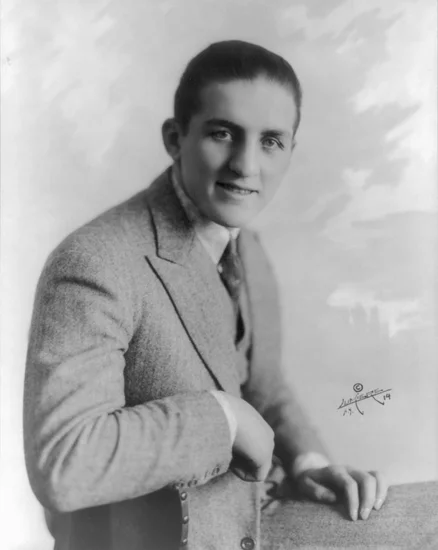
French boxer Georges Carpentier delivered one of boxing’s most dramatic knockouts in London. The lightning-fast victory demonstrated Carpentier’s exceptional punching power and boxing skill.
This spectacular knockout enhanced Carpentier’s reputation as one of boxing’s most charismatic champions. The fight’s brevity and drama exemplified the excitement and unpredictability of heavyweight boxing.
1975 – Muhammad Ali defeats Joe Frazier in a boxing match in Manila, Philippines
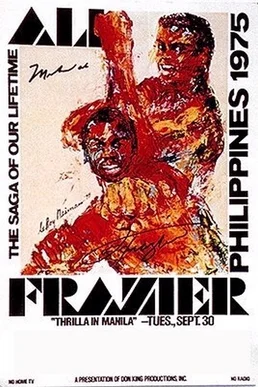
The legendary “Thrilla in Manila” concluded with Ali’s victory in one of boxing’s greatest contests. This brutal heavyweight championship fight showcased both fighters’ extraordinary courage and determination.
The fight’s intensity and drama elevated both combatants to legendary status in boxing history. Ali’s victory in this epic battle cemented his reputation as boxing’s greatest heavyweight champion.
1961 – The CTV Television Network, Canada’s first private television network, is launched
Canada’s broadcasting landscape transformed with the introduction of its first private television network. CTV’s launch challenged the CBC’s broadcasting monopoly and expanded Canadian television programming.
This development increased competition in Canadian broadcasting and provided viewers with more diverse programming choices. The network’s success demonstrated the viability of private broadcasting in Canada.
Notable Births on October 1
1924 – Jimmy Carter, American naval lieutenant, politician, 39th President of the United States, and Nobel Prize laureate

The future president and humanitarian was born in Plains, Georgia, beginning a life dedicated to public service. Carter’s small-town upbringing shaped his values and approach to leadership.
His presidency emphasized human rights and diplomatic solutions to international conflicts. Carter’s post-presidential humanitarian work earned him global recognition and the Nobel Peace Prize.
1924 – William Rehnquist, American lawyer and jurist, 16th Chief Justice of the United States
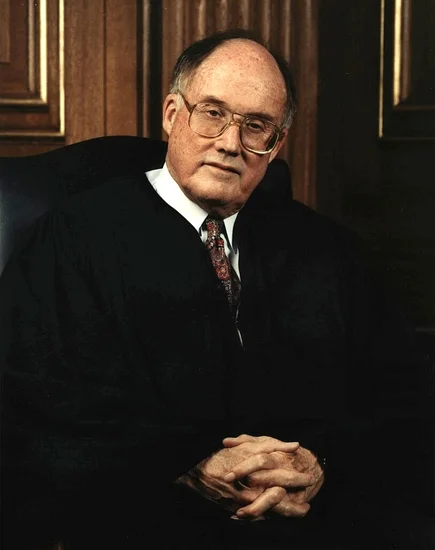
The future Supreme Court Chief Justice was born in Milwaukee, Wisconsin, beginning a distinguished legal career. Rehnquist’s conservative judicial philosophy would influence American law for decades.
His leadership of the Supreme Court shaped constitutional interpretation and federal-state relations. Rehnquist’s tenure marked a significant shift toward conservative judicial activism.
1935 – Julie Andrews, English actress and singer
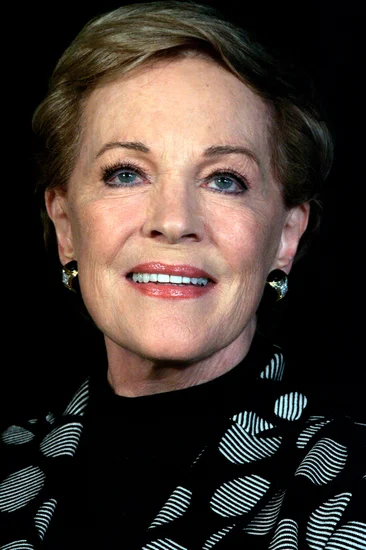
The beloved actress and singer was born in Walton-on-Thames, England, beginning an extraordinary entertainment career. Andrews’ pure soprano voice and acting talent made her a global icon.
Her roles in “Mary Poppins” and “The Sound of Music” defined family entertainment for generations. Andrews’ career spanning stage, film, and television established her as entertainment royalty.
1924 – Walter Matthau, American actor

The future Oscar-winning actor was born in New York City, beginning a career that would span five decades. Matthau’s distinctive persona and comedic timing made him a Hollywood legend.
His partnership with Jack Lemmon created some of cinema’s most beloved comedic performances. Matthau’s career demonstrated the enduring appeal of character-driven comedy.
1956 – Theresa May, English politician, former Prime Minister of the United Kingdom

The future Prime Minister was born in Eastbourne, England, beginning a distinguished political career. May’s rise through Conservative Party ranks demonstrated her determination and political acumen.
Her premiership during Brexit negotiations tested her leadership abilities under extraordinary pressure. May’s career broke barriers for women in British politics and government.
1966 – George Weah, Liberian footballer and politician, 25th President of Liberia
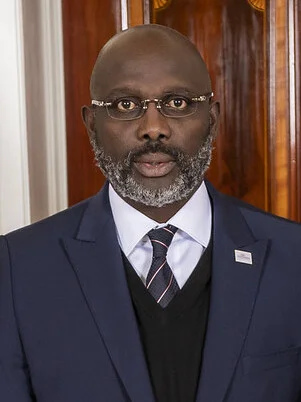
The future president and soccer legend was born in Monrovia, Liberia, beginning an extraordinary dual career. Weah’s athletic achievements made him Africa’s most celebrated footballer.
His transition from sports to politics demonstrated the power of celebrity in African governance. Weah’s presidency represented hope for democratic development in post-conflict Liberia.
1903 – Vladimir Horowitz, Russian-born American pianist and composer
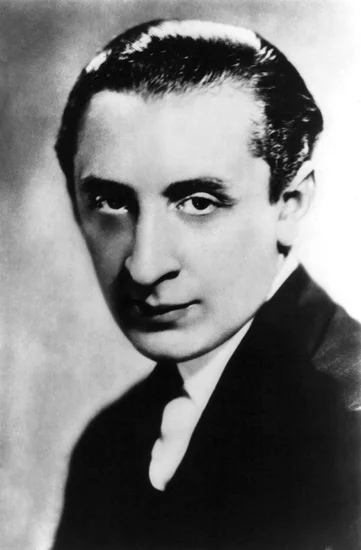
The legendary pianist was born in Berdichev, Ukraine, beginning one of classical music’s most celebrated careers. Horowitz’s technical brilliance and interpretive genius revolutionized piano performance.
His concerts became cultural events that transcended classical music’s traditional boundaries. Horowitz’s artistry established new standards for piano virtuosity and musical interpretation.
Notable Deaths on October 1
1985 – E. B. White, American essayist and journalist

The beloved author of “Charlotte’s Web” and “Stuart Little” passed away in North Brooklin, Maine. White’s clear prose style and gentle humor influenced generations of writers and readers.
His children’s literature created timeless stories that continue to enchant young readers worldwide. White’s essays and journalism demonstrated the power of simple, elegant writing.
1988 – Sacheverell Sitwell, English author, poet, and critic
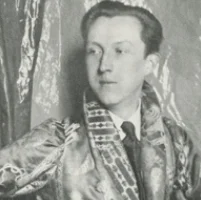
The distinguished writer and youngest of the famous Sitwell siblings died in Northamptonshire, England. Sitwell’s literary contributions spanned poetry, criticism, and cultural commentary.
His artistic sensibility and extensive travels informed his writing about art, architecture, and culture. Sitwell’s work preserved and celebrated European cultural traditions.
1972 – Louis Leakey, Kenyan-English archaeologist and paleontologist
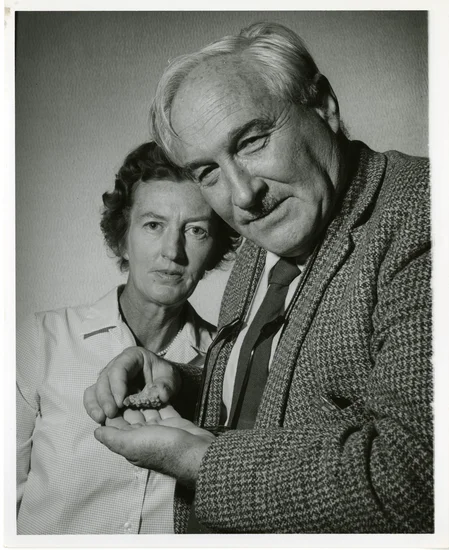
The pioneering scientist who revolutionized understanding of human evolution died in London, England. Leakey’s discoveries in East Africa provided crucial evidence for human origins.
His work at Olduvai Gorge and other sites established Africa as the cradle of humanity. Leakey’s research fundamentally changed scientific understanding of human evolution.
1959 – Enrico De Nicola, Italian journalist, lawyer, politician, and first President of Italy
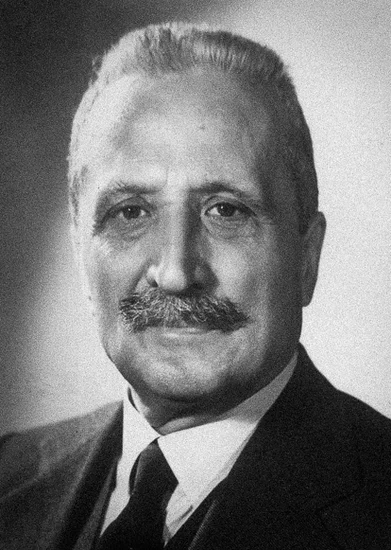
Italy’s first head of state following World War II passed away in Torre del Greco, Italy. De Nicola’s leadership during Italy’s transition from monarchy to republic proved crucial.
His diplomatic skills and political wisdom helped establish Italy’s democratic institutions. De Nicola’s presidency provided stability during a turbulent period in Italian history.
2013 – Tom Clancy, American author
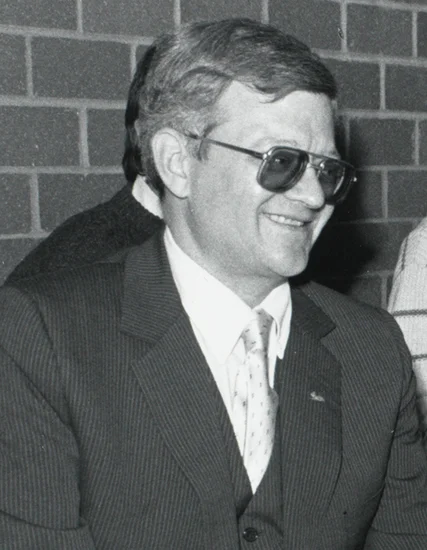
The master of military thrillers died in Baltimore, Maryland, ending a career that defined the techno-thriller genre. Clancy’s detailed military knowledge and storytelling ability captivated millions of readers.
His novels influenced popular culture’s perception of military technology and international relations. Clancy’s work bridged entertainment and education about military affairs.
2004 – Richard Avedon, American photographer
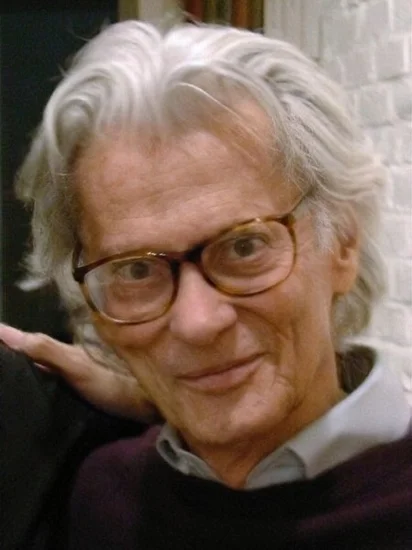
The legendary fashion and portrait photographer died in San Antonio, Texas, concluding a career that defined modern photography. Avedon’s innovative techniques and artistic vision revolutionized fashion photography.
His portraits captured the essence of cultural icons and ordinary people with equal insight. Avedon’s work elevated commercial photography to fine art status.
2012 – Eric Hobsbawm, Egyptian-English historian and author

The influential Marxist historian died in London, England, concluding a career that shaped modern historical understanding. Hobsbawm’s sweeping analyses of capitalism and modernity influenced academic discourse.
His accessible writing style brought complex historical concepts to general readers. Hobsbawm’s work provided frameworks for understanding modern economic and social development.
Holidays and Observances on October 1
International Day of Older Persons

The United Nations designated this day to raise awareness about issues affecting older adults worldwide. The observance promotes dignity, independence, and participation for elderly populations.
Communities worldwide organize events celebrating older adults’ contributions to society. The day addresses challenges like age discrimination, healthcare access, and social isolation.
National Day of the People’s Republic of China
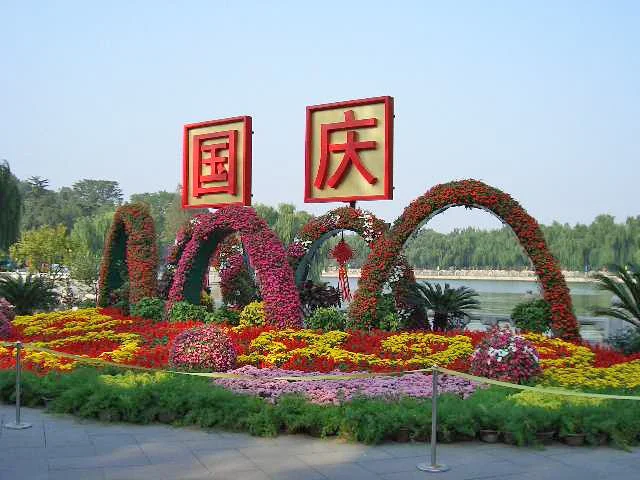
China celebrates the founding of the People’s Republic with parades, fireworks, and cultural events. The holiday commemorates the 1949 proclamation that established communist rule.
The celebration demonstrates national unity and showcases China’s economic and military achievements. The holiday includes a week-long vacation period known as Golden Week.
Independence Day, celebrates the independence of Nigeria from United Kingdom in 1960
Nigeria commemorates its independence with ceremonies, parades, and cultural celebrations nationwide. The holiday marks the end of British colonial rule and the beginning of self-governance.
The observance reflects on Nigeria’s achievements and challenges since independence. The day promotes national unity among Nigeria’s diverse ethnic and religious communities.
International Day of Coffee
Coffee lovers worldwide celebrate this beverage’s cultural and economic significance. The observance recognizes coffee’s role in global commerce and daily life.
The day highlights coffee farmers’ contributions and promotes sustainable coffee production. Coffee shops and enthusiasts organize tastings, educational events, and cultural celebrations.
